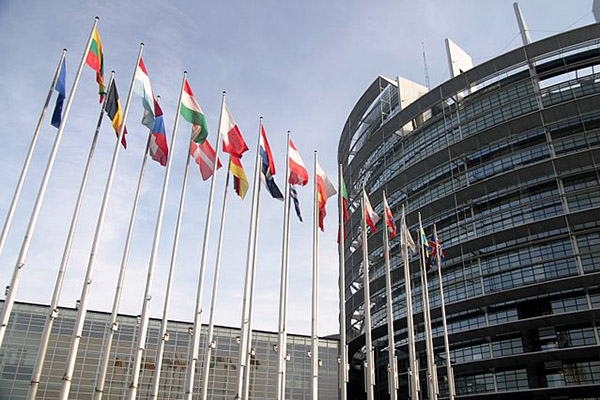Spanish version: El diseño de un mecanismo consultivo de expertos independientes en el marco de la Ley Europea del Clima: ¿cuáles son las opciones?
Read the full report (PDF) on the Grantham Research Institute on Climate Change and the Environment website.
Summary of the key messages
The need for an independent expert advisory mechanism
Independent expert advisory mechanisms or bodies on climate change are essential for enhancing the legitimacy and accountability of the policymaking process and helping to strengthen public trust and political support for climate action. This is necessary for a successful transition to ‘climate neutrality’ (net-zero greenhouse gas emissions) in Europe: there must be political buy-in and public support for both the objectives and policies needed to achieve it, from across the EU.
The use of independent expert advice through specialised mechanisms or bodies in the EU is not new. Advisory bodies have been established at the EU level to advise on environment, energy regulation, social policy, transition to ‘best available techniques’ to reduce emissions, human rights, sustainable finance and financial stability, among others.
Most national climate change laws in Europe establish or assign responsibilities to an independent expert advisory body that broadly aims to strengthen the credibility and legitimacy of climate change policies. The EU could take inspiration and learn from governance innovations and experience at the national level. The specific governance dividends produced by such bodies are also likely to be particularly important to EU climate policymaking, given the Union’s persistent problems with ensuring direct accountability to and legitimacy with citizens.
There is a clear need for an independent expert advisory mechanism on climate change at the European level to enable an independent scientific review of targets and policy proposals, to review the implementation of the European Climate Law, and to give a pan-European perspective on progress and policy consistency.
An independent expert advisory mechanism on climate change would enhance the credibility of the analysis and policy proposals prepared by the European Commission, rather than undermining or duplicating the Commission’s mandate. By providing independent, highly qualified and non-politicised review and advice, the independent mechanism would strengthen political buy-in to the proposals by the Commission and the overall legitimacy and public acceptability of the implementation of the EU’s transition to climate neutrality.
The mandate of a European advisory mechanism on climate change would be complementary to the Intergovernmental Panel on Climate Change (IPCC); it would not overlap with or undermine the Panel. The IPCC’s mandate is to determine the state of knowledge on climate change, identifying areas of agreement in the scientific community and topics for further research. The IPCC does not provide advice on specific targets and policy proposals, nor does it assess progress with implementation in a specific geography.
Failure to establish a credible independent advisory mechanism in the EU would expose the process of the implementation of the legislation to additional political pressure. It would create greater scope for questioning analytical validity and legitimacy of the assumptions and proposed policy options. Countries currently lacking an advisory body on climate change at the national level would continue to be at a disadvantage.
Composition of the advisory mechanism’s membership
The composition of any independent advisory mechanism has a major bearing on the likelihood of it having substantial policy influence. Effective bodies are comprised of prominent experts who are recognised as authorities in their respective fields internationally, covering climate science, economics, behavioural sciences and relevant sectoral expertise.
A body with a very large membership is unlikely to be effective and succeed in proposing substantial policy change (as demonstrated by various authors).1
The members selected must be trusted by most interested parties, including the European Commission, the Parliament, the Council, civil society, business and climate policy experts and decision-makers in the Member States. This can be achieved through requiring a high level of independence and expertise and selection through a transparent and competitive process, avoiding selection based on affiliation with a particular stakeholder group or institution.
The preferable model for the design of the independent advisory mechanism is a permanent standalone body, composed of independent technical experts that serve for a specific term (e.g. four to five years), selected through a transparent, competitive, open call process.
An informal network of national experts or ad hoc sourcing of expert information by the Commission would fail to meet the key criteria for effective independent advisory mechanisms on climate change.
A European body comprised of the nominated representatives of national expert bodies raises concerns with ensuring independence and a variety of technical expertise. It limits the pool of technical and geographical expertise to that already present in the national advisory bodies on climate change (e.g. limiting the expertise from Eastern and Southern Europe and in recently emerging thematic areas).
By incorporating the responsibility to coordinate information exchange with the national bodies into the mandate of the European body, greater engagement of national expertise already present in the national bodies could be achieved.
Strengthening mandate and accountability
Strong parliamentary oversight further enhances the prominence and effectiveness of independent expert advice and strengthens the accountability of policymakers for implementation.
Recent experience with the technical expert group on sustainable finance can inform the debate on the advisory body. This group is assisting the Commission in developing the EU taxonomy on sustainable finance, a Green Bond Standard and methodologies for climate benchmarks; and on disclosure of climate-related information.
Recommendations
The European Climate Law must include provisions for a permanent standalone independent expert advisory body on climate change, rather than informal mechanisms for soliciting expert input:
- The Law should specify the body’s institutional form, mandate, and how it would be composed and funded to ensure independence and a high quality of expertise.
- It should also determine the body’s accountability to and relationships with the European Commission, Parliament, Council and Member States. Further operational details can be determined through delegated legislation.
The mandate of the European independent expert advisory body on climate change should include independent reviews of:
- The proposals by the Commission on the emissions trajectories for achieving climate neutrality (net-zero emissions) (Article 3 of the Commission’s proposal); and/or the proposals on the level of the carbon budget (the Proposal by the Committee on the Environment, Public Health and Food Safety).
- The assumptions and models that provide the basis for the development of climate change policies.
- The consistency of policies proposed by the Commission (Article 4 of the Commission’s proposal) with the climate neutrality and adaptation objectives.
- The national measures (Article 6 of the Commission’s proposal).
- The reports on the EU’s progress in implementing measures on mitigation and adaptation (Article 5 of the Commission’s proposal) and preparation of recommendations on how to address the gaps.
The main goal of the independent reviews should be to ensure the alignment of the proposals with the latest scientific findings and the agreed targets, enhancing their credibility and political buy-in.
Defining progress criteria:
- The body could usefully define criteria or indicators for assessing the progress of implementation to inform the work of the Commission and the Members States.
Facilitating stakeholder interaction:
- The body could usefully assist the Commission in facilitating interaction with stakeholders and national advisory bodies and integrating their input into the policymaking process.
- The European Climate Law should task the expert advisory body with developing a proposal on how it would engage with external stakeholders, including national advisory bodies on climate change, energy and climate dialogues, and eventually with the European Climate Pact.
Conducting independent analysis and progress assessments:
- A broader mandate could ask the advisory body to conduct its own independent analysis and present proposals to the Commission on emissions trajectories or carbon budgets and the underlying policies, and/or to produce its own assessments of progress.
- This could further strengthen the legitimacy and political buy-in to the EU’s climate policy. However, it would require greater resourcing and clear delineation of duties to avoid duplication.
Independence, expertise and autonomy:
- The body’s design should ensure the independence of the individual experts and of the institution as a whole from political influences and constituency pressures, which can be achieved by selection through a transparent and competitive process of calls for experts.
- These independent experts should possess a high level of technical expertise in the disciplines central to climate change policy, including climate science, economics, social and behavioural sciences, and relevant sectoral expertise.
- Selecting experts based on an open call could be delegated to an external board, comprised of either representatives of national advisory bodies on climate change or the Member States’ governments (the former would ensure greater independence from politics) and the Commission.
- This could help address the demands for Member States’ engagement made by the proponents of the model based on national nomination.
- However, it would be important to ensure that the political independence of the experts and the advisory body as a whole is not compromised.
- The funding arrangement for the advisory body should not jeopardise the independence of the body and there should be a protected right to sufficient funding provisions.
- The mechanism should have the autonomy to determine its own work programme (in line with its statutory mandate) and to manage its budget independently.
Permanency and size:
- The design of a European advisory mechanism should ensure institutional permanency.
- The size of the body should be small enough to ensure effective operation and be in line with national experiences in the Member States, where bodies vary from five to 15 members.
Secretariat and budgetary/administrative independence:
- The body would benefit from support from a secretariat, which could be established specifically for this purpose or hosted by one of the existing institutions, such as the European Environment Agency (EEA).
- If the EEA or another existing institution hosts the secretariat, clear arrangements should be put in place to preserve budgetary and administrative independence of the independent advisory body and its secretariat.
- The secretariat should be a self-contained, newly established unit, funded from a dedicated budget for the independent advisory body and guided by the body itself rather than being carved out from the existing work programme.
Requirements for the European Commission, Parliament and Council:
- The European Climate Law should introduce a statutory requirement for the European Commission to respond formally to recommendations made by the expert body to ensure the advice is considered and given prominence.
- The EU Parliament and the Council should introduce parliamentary oversight into the Law through the requirement for the reports on progress and other key pieces of advice by the independent advisory mechanism on climate change to be laid before Parliament and/or the Council for these bodies to consider and respond to the advice.
Alina Averchenkova
Distinguished Policy Fellow and the lead for the Governance and Legislation research theme at the Grantham Research Institute on Climate Change and the Environment and CCCEP at the London School of Economics | @averchenkova
Lara Lázaro Touza
Senior Anayst, Energy & Climate Programme, Elcano Royal Institute | @lazarotouza
Read the full report (PDF) on the Grantham Research Institute on Climate Change and the Environment website.
1 E.g. see Tsebelis G. (2002), Veto Players: How Political Institutions Work, Princeton, NJ: Princeton University Press; Marier P. (2009), The power of institutionalized learning: the uses and practices of commissions to generate policy change, Journal of European Public Policy 16:8: 1204-1223.




